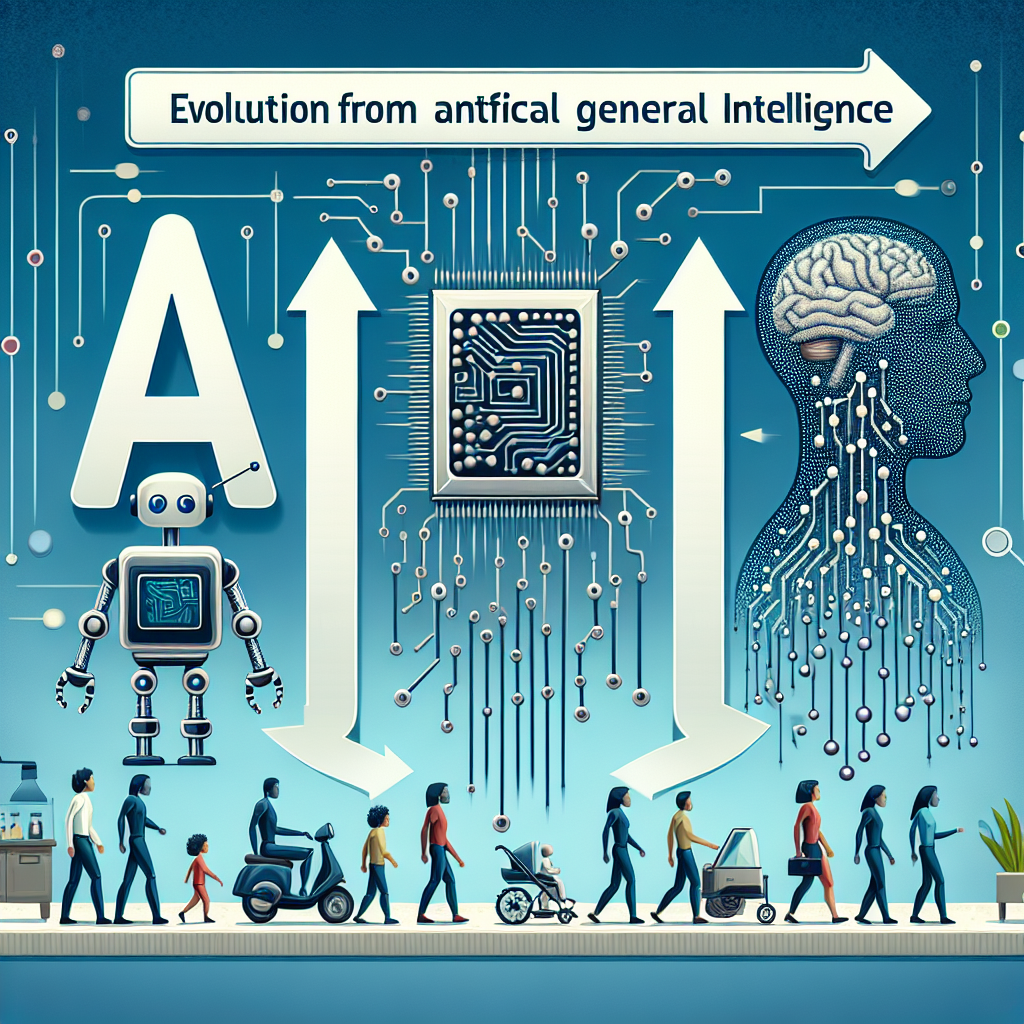From Narrow AI to AGI: What the Evolution of AI Means for Society
Artificial Intelligence (AI) has been one of the fastest-growing fields in technology over the past few decades. From simple automation tasks to complex problem-solving, AI has made significant advancements that have changed the way we live, work, and interact with the world around us. As AI continues to evolve, the question of how it will impact society becomes increasingly important. In this article, we will explore the evolution of AI from Narrow AI to Artificial General Intelligence (AGI) and discuss what it means for society.
1. Narrow AI vs. AGI
Narrow AI, also known as weak AI, refers to AI systems that are designed for specific tasks or applications. These systems are programmed to perform a single task or a limited set of tasks, such as speech recognition, image classification, or playing games. Narrow AI is highly specialized and lacks the ability to generalize or adapt to new tasks without human intervention.
On the other hand, AGI, also known as strong AI, refers to AI systems that possess the ability to understand, learn, and apply knowledge across a wide range of tasks and domains. AGI is often described as the holy grail of AI, as it represents the creation of machines that can think and reason like humans. While AGI is still a theoretical concept, researchers and AI experts are working to develop systems that can achieve this level of intelligence.
2. The Evolution of AI
AI has come a long way since its inception in the 1950s. Early AI systems were based on rule-based programming and symbolic reasoning, which limited their capabilities to perform simple tasks. However, with the advent of machine learning and deep learning algorithms, AI systems have become more powerful and capable of handling complex tasks.
The evolution of AI can be divided into several stages, starting with narrow AI applications in specific domains such as healthcare, finance, and transportation. These applications have revolutionized industries by automating repetitive tasks, improving efficiency, and providing valuable insights from large datasets.
As AI continues to advance, researchers are exploring the development of AGI systems that can exhibit human-like intelligence and cognitive abilities. While AGI remains a distant goal, recent advances in AI research have brought us closer to achieving this milestone. Researchers are working on creating AI systems that can learn from experience, reason abstractly, and adapt to new situations – all key components of general intelligence.
3. The Impact of AI on Society
The evolution of AI has the potential to transform society in profound ways. From healthcare and education to transportation and entertainment, AI is already reshaping industries and changing the way we live and work. However, as AI becomes more advanced and pervasive, it raises important ethical, social, and economic implications that must be carefully considered.
One of the main concerns about AI is its impact on the job market. As AI systems become more capable of performing tasks traditionally done by humans, there is a fear that automation will lead to job displacement and unemployment. While AI has the potential to create new jobs and industries, it also poses a threat to existing jobs that can be easily automated.
Another concern is the ethical implications of AI, particularly in areas such as privacy, bias, and accountability. AI systems are trained on large datasets that may contain biased or discriminatory information, leading to biased decisions and outcomes. Additionally, AI systems can pose a threat to privacy by collecting and analyzing personal data without consent or transparency.
4. FAQs
Q: What is the difference between Narrow AI and AGI?
A: Narrow AI refers to AI systems that are designed for specific tasks or applications, while AGI refers to AI systems that possess the ability to understand, learn, and apply knowledge across a wide range of tasks and domains.
Q: How will AI impact the job market?
A: AI has the potential to automate tasks traditionally done by humans, leading to job displacement and unemployment. However, it also has the potential to create new jobs and industries.
Q: What are the ethical implications of AI?
A: AI raises concerns about privacy, bias, and accountability. AI systems can be trained on biased datasets, leading to unfair decisions. Additionally, AI systems can pose a threat to privacy by collecting and analyzing personal data without consent.
Q: What is the future of AI?
A: The future of AI is still uncertain, but researchers are working towards developing AGI systems that can exhibit human-like intelligence and cognitive abilities. AI has the potential to revolutionize industries and improve our quality of life, but it also raises important ethical and social implications that must be carefully considered.
In conclusion, the evolution of AI from Narrow AI to AGI represents a significant milestone in the field of artificial intelligence. As AI continues to advance, it has the potential to transform society in profound ways, revolutionizing industries, creating new opportunities, and raising important ethical and social implications. It is crucial for researchers, policymakers, and society as a whole to address these challenges and ensure that AI is developed and deployed responsibly for the benefit of all.

